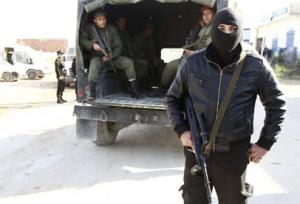 Presidency says lifting of state of emergency does not limit capacity of security services to implement law.
Presidency says lifting of state of emergency does not limit capacity of security services to implement law.TUNIS - Tunisian President Moncef Marzouki has lifted a state of emergency in force since the 2011 uprising that triggered the Arab Spring, his office said Thursday.
"The president and commander-in-chief of the armed forces... issued a decree lifting the state of emergency in the whole country from Wednesday, March 5, 2014," a statement said.
Tunisia has been rocked by sporadic attacks blamed on jihadists since the 2011 revolution that toppled a decades-old dictatorship and touched off uprisings across North Africa and the Middle East.
In November, Marzouki had extended the emergency rule for eight months until the end of June, meaning it has been lifted four months early.
"The lifting of the state of emergency does not limit the capacity of the security services to implement the law and does not preclude any request for military support should it be needed," said the presidency.
This "will not bring about changes in the implementation of laws and policies in place in the country, including those concerning military operations areas and border buffer zones."
Special military zones were established last year on Tunisia's borders with Algeria and Libya, where the authorities say armed groups are active.
Much of the deadly violence witnessed in Tunisia since the January 2011 uprising has been blamed on Ansar al-Sharia, a hardline Islamist movement accused of having links to Al-Qaeda.
The government has said Ansar al-Sharia was behind the separate assassinations last year of two secular politicians, killings that plunged Tunisia into political turmoil.
The group never claimed responsibility for those or any other attacks.
For more than a year, the security forces have been battling Islamist militants hiding out in the remote border regions of western Tunisia, notably in the Chaambi Mountains.
By Middle East Online
The Iran Project is not responsible for the content of quoted articles.











